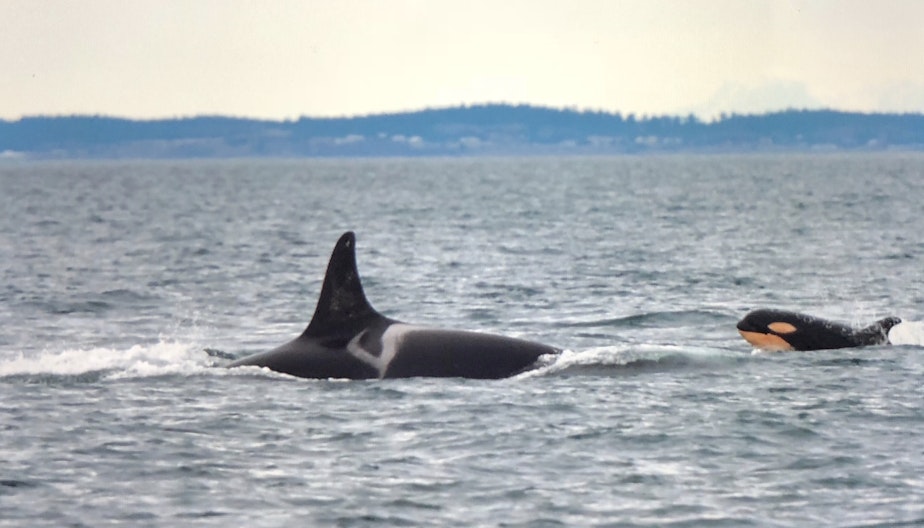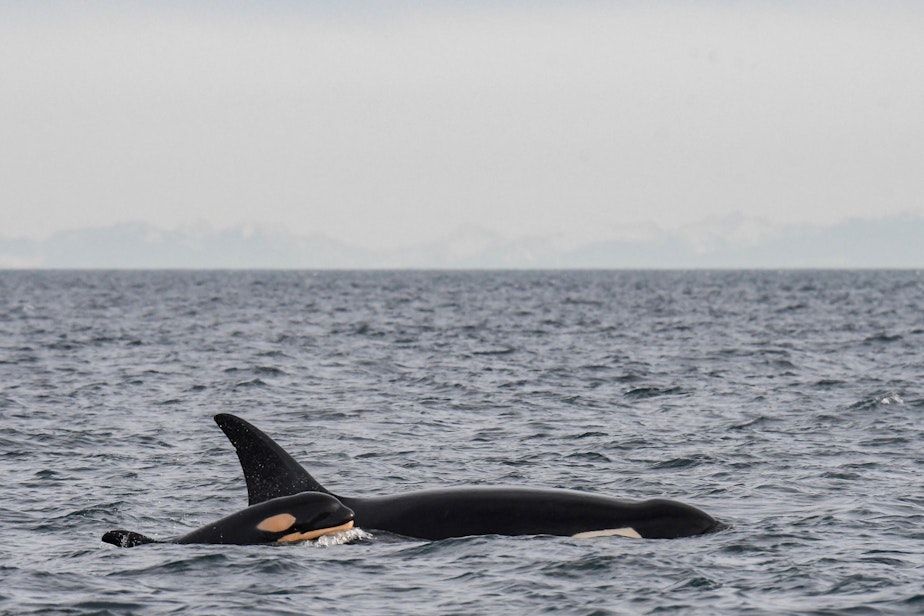And baby makes 75: newborn orca boosts endangered whale population

Whale researchers spotted a baby orca swimming energetically with its mother west of San Juan Island on Friday.
The new orca calf boosts the population of the endangered southern resident killer whales to 75.
TV news helicopters spotted the whale on Thursday near Vashon Island and shared their footage with the Center for Whale Research in Friday Harbor.
“We are able to confirm that L77 has a new baby in L pod of the SRKW population. The baby is several weeks old and energetic, so we hope to see it survive," Ken Balcomb with the Center for Whale Research said in an email.
"We are very excited," said Susan Berta with the nonprofit Orca Network on Whidbey Island.
"Usually a new calf is nothing but pure joy, and we are all definitely feeling that, but in recent years, the calves have not been surviving,” Berta said.
Sponsored
No calf born to the southern residents since 2015 has survived.
Last summer, a calf born to the whale known as J35 died shortly after birth, and its mother carried the corpse around on her nose for 17 days, drawing international attention.
“That this animal is a few weeks old is wonderful news,” University of Washington biologist Deborah Giles said.
“We’re trying to let the joy in and have the hope that this one will make it,” Berta said.

Sponsored
Even in good years, only about half of newborn orcas survive.
This calf's odds are helped by the fact that it is a third child.
Orcas offload the toxic pollutants like PCBs in their flesh through mothers' milk. The lifetime buildup of toxics is mostly offloaded into their firstborns.
L77’s first offspring lived only a short time, according to the Whale Museum; her second is now six years old.
Sponsored
“This calf is going to be getting a significantly less-toxic burden, which is good news,” University of Washington biologist Deborah Giles said.
Researchers say the biggest factor in the survival of southern resident killer whales, young and old, is whether they can find enough salmon to eat.
It's not a great time of year to be a baby orca: salmon can be scarce until the runs of spring chinook—the fattiest of all salmon—return.
“Generally speaking, the winters can be very rough--meaning not a lot of prey available,” Giles said.
Orcas share food, even when they're starving.
Sponsored
Giles said L77's family group tends to travel on its own, meaning fewer mouths to share with, a good thing when encountering limited salmon supplies.
All three southern resident pods (J, K and L) swam and socialized together in the Strait of Juan de Fuca off Vancouver Island Friday afternoon.
“The most striking thing was how social and playful the whales were and in such large groups,” said Sara Hysong-Shimazu, a naturalist for Maya's Legacy Whale Watching, in a message sent from Cattle Pass as her whale-watch tour was returning to Friday Harbor.
“The whales were rolling all over each other, spyhopping, breaching and just in close physical contact with each other.”
Among the measures Gov. Jay Inslee has proposed to disturb orcas less is a three-year ban on whale-watch tours targeting the southern residents.
Sponsored
One orca in J pod and one in K pod were seen to be pregnant in September.
The status of those pregnancies remains unknown.
Orcas carry their babies for 17 months before giving birth.




